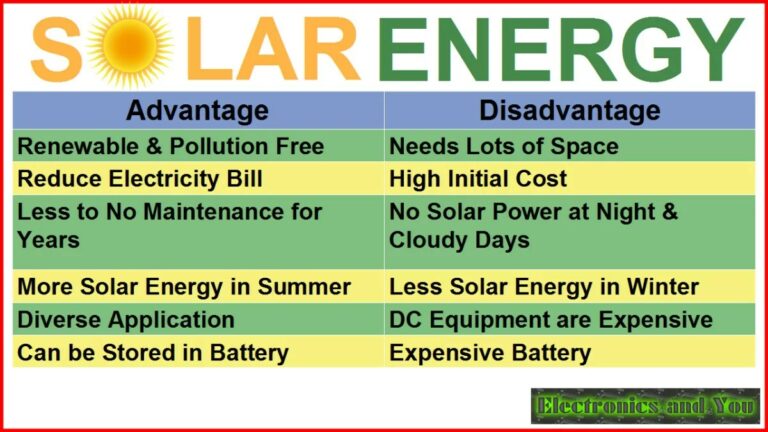Does Solar Energy Contribute To Global Warming?
Imagine a world where we can harness the power of the sun to generate clean, renewable energy. Sounds amazing, right? Well, that’s exactly what solar energy allows us to do. But here’s a thought that may have crossed your mind: does solar energy contribute to global warming? Let’s dive into this fascinating topic and find out the truth about the impact of solar energy on our planet’s climate.
When it comes to global warming, we often associate it with harmful greenhouse gas emissions. But here’s the good news: solar energy systems produce minimal greenhouse gas emissions. In fact, solar power is one of the cleanest sources of energy available today. By harnessing the energy from the sun, we can reduce our dependence on fossil fuels and mitigate the harmful effects of climate change. So, the answer to the question is no, solar energy does not contribute to global warming.
Not only does solar energy help combat global warming, but it also offers a wide range of benefits. From reducing electricity bills to creating local job opportunities, solar power is a win-win solution for our planet and our communities. So, let’s explore the world of solar energy and discover how it is revolutionizing the way we power our lives while protecting the Earth we call home.

Does Solar Energy Contribute to Global Warming?
Solar energy is often championed as a clean and sustainable alternative to fossil fuels. The sun’s rays are harnessed by solar panels to generate electricity, reducing our reliance on carbon-intensive energy sources. However, there are questions about whether solar energy itself has any negative impacts on the environment, particularly in relation to global warming. In this article, we will explore the various aspects of solar energy production and its potential contribution to global warming.
The Science Behind Solar Energy
Before delving into the impact of solar energy on global warming, it is essential to understand how solar energy works. Solar energy is derived from the sun’s radiation, which is converted into electricity through the use of solar panels.
Solar panels consist of photovoltaic (PV) cells, which are made up of semiconductor materials like silicon. When sunlight strikes these cells, it excites the electrons, creating an electric current. This current is then collected and converted into usable electricity.
It’s important to note that solar energy production does not involve the burning of fossil fuels or the emission of greenhouse gases like carbon dioxide. This fundamental characteristic is what sets solar energy apart as a cleaner and more sustainable form of energy.
The Carbon Footprint of Solar Panels
While solar energy production itself does not release greenhouse gases, it is crucial to consider the carbon footprint associated with the manufacturing and disposal of solar panels. The production of solar panels requires energy, raw materials, and transportation, all of which contribute to carbon emissions.
However, studies have shown that within a few years of operation, solar panels offset the carbon emissions associated with their production. The carbon payback period, which is the time it takes for a solar panel to neutralize the carbon emissions generated during its manufacturing, is generally around one to four years.
Additionally, as technology advances and the efficiency of solar panels improves, the carbon footprint of their production is likely to decrease further. Recycling initiatives for solar panels are also gaining traction, ensuring that their materials are repurposed instead of ending up in landfills.
Reducing the Carbon Intensity of the Energy Grid
One of the significant benefits of solar energy is its ability to reduce the carbon intensity of the overall energy grid. By generating clean electricity from the sun, solar energy helps displace the use of fossil fuel-based energy sources like coal and natural gas.
In regions where the electricity grid relies heavily on fossil fuels, the integration of solar energy can lead to a considerable reduction in greenhouse gas emissions. As more homes, businesses, and institutions adopt solar energy, the demand for fossil fuel-generated electricity decreases, thereby mitigating the impact of global warming.
Furthermore, the installation of solar panels on buildings can help reduce the amount of heat absorbed by structures, which can contribute to the urban heat island effect. By decreasing the need for air conditioning, solar energy indirectly contributes to the mitigation of local climate change impacts.
Minimizing Environmental Impacts through Proper Installation and Maintenance
While solar energy systems have numerous environmental benefits, poor installation or maintenance practices can potentially lead to negative consequences. For instance, improperly designed solar panel installations can disrupt local ecosystems, particularly if they encroach on habitats or obstruct migratory bird pathways.
However, these negative impacts can be minimized through careful planning and adherence to environmental regulations. Ensuring that solar panel installations are located in appropriate areas, away from important wildlife habitats, and implementing measures to avoid bird collisions are crucial steps in protecting the environment while harnessing solar energy.
Regular maintenance and cleaning of solar panels are also essential to maximize energy production efficiency and minimize potential environmental harm. By keeping solar panels in optimal condition, their lifespan is extended, reducing the need for premature replacement and further contributing to sustainability.
Comparing Solar Energy to Other Energy Sources
When evaluating whether solar energy contributes to global warming, it is important to compare it to other energy sources, particularly those that generate electricity through the combustion of fossil fuels.
vs. Coal-Fired Power Plants
Coal-fired power plants are notorious for their greenhouse gas emissions and contribution to global warming. Burning coal releases large amounts of carbon dioxide, sulfur dioxide, nitrogen oxides, and other pollutants into the atmosphere, leading to air pollution and climate change.
On the other hand, solar energy production emits no greenhouse gases during operation. By replacing coal-fired power plants with solar energy systems, significant reductions in greenhouse gas emissions can be achieved.
vs. Natural Gas Power Plants
Natural gas is considered a relatively cleaner fossil fuel compared to coal, as it emits less carbon dioxide and fewer air pollutants. However, it is still a significant contributor to global warming.
Solar energy offers a renewable and emission-free alternative to natural gas power plants. By embracing solar energy, the dependence on finite natural gas resources can be reduced, while simultaneously mitigating climate change through the reduction of greenhouse gas emissions.
vs. Nuclear Power
Nuclear power is often touted as a low-carbon energy source, as it does not release greenhouse gases during operation. However, the mining, processing, and disposal of nuclear fuel do have environmental impacts and potential for accidents.
Solar energy, on the other hand, poses no risks associated with nuclear accidents or the long-term storage of nuclear waste. As solar technology continues to improve, it becomes an even more attractive option for generating clean and safe electricity.
Harnessing the Power of the Sun Responsibly
Solar energy is a crucial tool in the fight against global warming. Its ability to generate clean electricity and reduce greenhouse gas emissions makes it a viable and sustainable alternative to traditional energy sources.
However, it is essential to ensure that solar energy is harnessed responsibly, with proper consideration for environmental impacts and adherence to best practices. By doing so, we can maximize the benefits of solar energy while minimizing any potential drawbacks.
Investing in a Sustainable Future
As the world grapples with the consequences of climate change, the importance of transitioning to renewable energy sources becomes increasingly evident. Solar energy offers a viable path towards a sustainable future, where the threat of global warming is mitigated, and the reliance on fossil fuels is significantly reduced.
By embracing solar energy, individuals, businesses, and governments can contribute to global efforts to combat climate change and preserve the planet for future generations. Investing in solar energy not only benefits the environment but also creates jobs, stimulates economic growth, and enhances energy independence.
The Future of Solar Energy
As technology continues to advance, the efficiency and affordability of solar energy systems are expected to improve. Innovations in materials, storage, and installation techniques are making solar energy more accessible and widespread.
Furthermore, the integration of solar energy with other renewable energy sources, such as wind and hydroelectric power, can create a more robust and reliable energy grid. By diversifying the mix of renewable energy technologies, society can achieve a more resilient and sustainable energy future.
Conclusion
When assessing whether solar energy contributes to global warming, it is crucial to consider the full picture. While there are carbon emissions associated with the manufacturing and disposal of solar panels, their overall environmental impact is significantly lower compared to traditional energy sources.
Solar energy plays a vital role in reducing greenhouse gas emissions, displacing fossil fuel-based energy sources, and mitigating the effects of global warming. By embracing solar energy and adopting sustainable practices, we can create a brighter future for our planet and generations to come.
Key Takeaways:
- Solar energy does not contribute to global warming.
- Solar panels convert sunlight into electricity without producing greenhouse gases.
- The energy generated by solar panels is clean and renewable.
- Using solar energy reduces the reliance on fossil fuels, which are a major contributor to global warming.
- Investing in solar power can help combat climate change and create a more sustainable future.
Frequently Asked Questions
Welcome to our FAQ section on the topic of solar energy and its impact on global warming. Below are some commonly asked questions and their answers.
1. How does solar energy help combat global warming?
Solar energy helps combat global warming by providing a clean and renewable source of power. Unlike fossil fuels, solar energy does not release greenhouse gases or harmful pollutants when generating electricity. By harnessing the power of the sun, we can reduce our reliance on fossil fuels and mitigate the effects of global warming.
Solar panels convert sunlight into electricity through the photovoltaic effect. This process does not produce any emissions or contribute to the greenhouse effect. By using solar energy, we can significantly reduce our carbon footprint and slow down the pace of global warming.
2. Does the production of solar panels contribute to global warming?
While the production of solar panels does have an environmental impact, it is relatively minimal compared to the emissions associated with fossil fuel energy production. The extraction of raw materials, manufacturing processes, and transportation do require energy and can result in some greenhouse gas emissions.
However, the energy payback period for solar panels is typically quite short, meaning that the energy saved during their lifetime far outweighs the emissions generated during production. Additionally, advancements in manufacturing techniques have led to more efficient and environmentally-friendly solar panel production practices, further reducing their overall impact on global warming.
3. Can solar energy systems cause any unintended environmental consequences?
Solar energy systems have minimal unintended environmental consequences compared to other forms of energy production. One potential concern is the land use required for large-scale solar projects. However, solar panels can often be installed on rooftops, parking lots, and other existing structures, minimizing the need for additional land.
Another consideration is the disposal of solar panels once they reach the end of their lifespan. However, most solar panels are made of recyclable materials, and efforts are underway to improve recycling processes and reduce waste.
4. Can solar energy replace fossil fuels completely?
While it is challenging for solar energy to completely replace fossil fuels in all sectors, it can play a significant role in reducing our dependence on them. Solar energy is already being used to power homes, businesses, and even entire cities. As technology advances and costs continue to decrease, solar energy has the potential to become an increasingly viable alternative to fossil fuels.
It is important to note that a diversified energy portfolio that includes a mix of renewables, such as solar and wind, along with energy storage solutions, will be necessary to achieve a sustainable and efficient energy system.
5. How does solar energy affect the economy?
Solar energy has a positive impact on the economy in several ways. The solar industry creates jobs in manufacturing, installation, and maintenance, contributing to local and national economic growth. Additionally, solar energy can reduce electricity bills for homeowners and businesses, allowing for cost savings and increased disposable income.
Furthermore, the transition to solar energy reduces our reliance on imported fossil fuels, improving energy independence and reducing vulnerability to price fluctuations in the global oil and gas markets. This shift towards clean energy can also attract investment and stimulate innovation in related industries, fostering economic development and sustainability.
Summary:
Solar energy does not contribute to global warming because it does not produce greenhouse gas emissions. Solar panels use the sun’s energy to generate electricity, a clean and renewable source. This helps reduce our reliance on fossil fuels, which are the main contributors to climate change.
Additionally, solar energy has many benefits, including reducing air pollution and creating job opportunities in the renewable energy sector. It is a sustainable solution that can help combat the effects of global warming and create a greener future for our planet. So, let’s embrace solar energy and harness the power of the sun to protect our environment!






